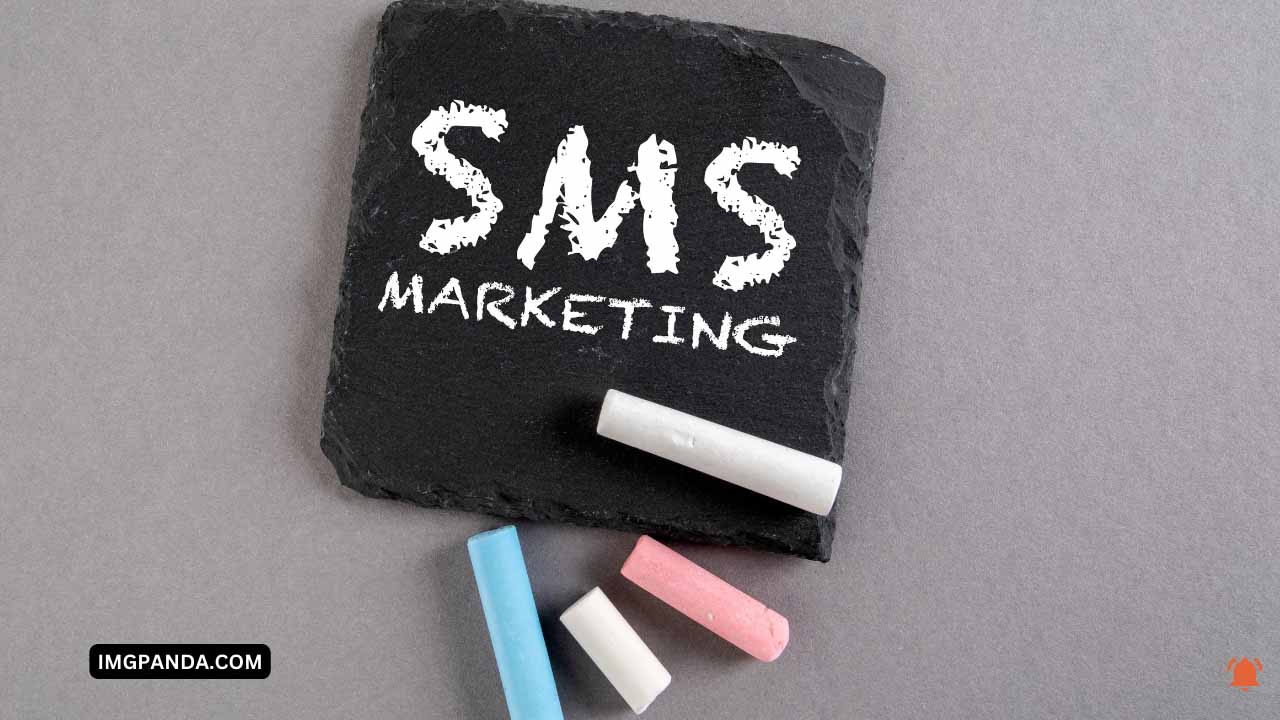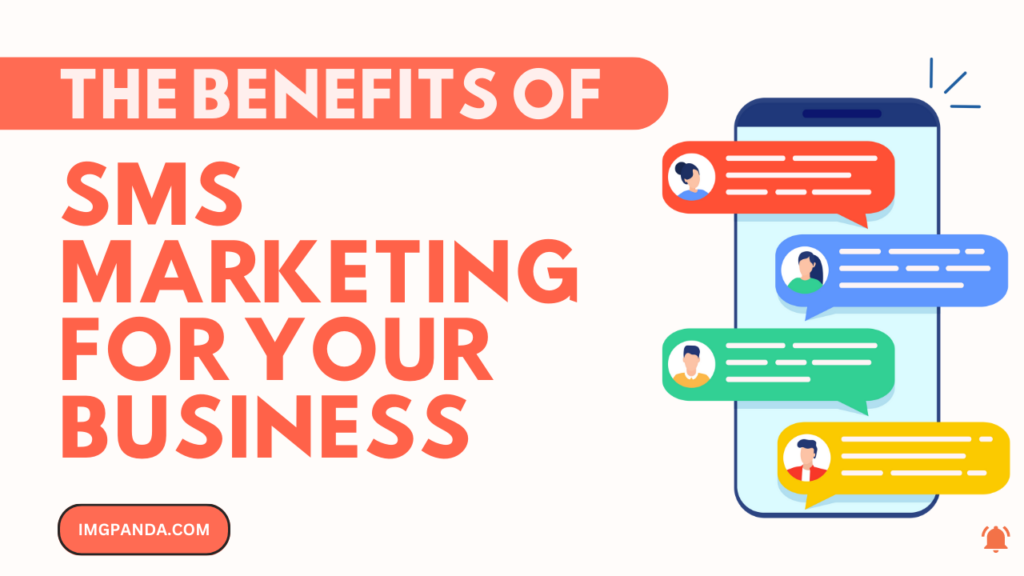Introduction
In today's fast-paced world, businesses need to find effective ways to connect with their target audience and engage them in meaningful conversations. SMS Marketing has become an increasingly popular method for businesses to reach their customers directly through their mobile devices. SMS Marketing involves sending text messages to customers who have opted in to receive them.
In this blog post, we will discuss the benefits of SMS Marketing for your business and how it can help you connect with your audience and increase your bottom line.
Also Read This: eStockPhoto: High-Quality Travel and Nature Videos
Advantages of SMS Marketing
SMS Marketing offers many advantages for businesses looking to engage with their customers. Here are some of the key benefits:
High Open Rate:
SMS messages have a much higher open rate than emails. On average, text messages have a 98% open rate, compared to only 20% for emails. This means that your message is more likely to be read and acted upon.
Direct Communication:
SMS Marketing allows businesses to communicate directly with their customers. Unlike other marketing channels, SMS messages are delivered straight to the customer's mobile device, creating a personal connection.
Cost-Effective:
SMS Marketing is a cost-effective way to reach your audience. The cost of sending an SMS message is relatively low compared to other forms of marketing such as print or television advertising.
Personalization:
SMS Marketing allows for personalized messaging. Businesses can use customer data to create targeted messages that are relevant to the individual recipient, increasing the chances of engagement and conversion.
High Conversion Rate:
SMS Marketing has a high conversion rate. According to a survey, SMS campaigns have an average conversion rate of 45%, compared to 2.63% for email campaigns.
Increased Customer Engagement:
SMS Marketing is a great way to increase customer engagement. By sending regular messages, businesses can keep their customers up to date with their latest products, promotions, and events.
Easy Opt-in and Opt-out:
SMS Marketing allows customers to easily opt-in or opt-out of receiving messages. This gives customers control over the messages they receive, which can lead to a more positive experience.
Time-Saving:
SMS Marketing is a time-saving way to reach your customers. Businesses can send mass messages to their entire customer base at once, saving time and effort.
Overall, SMS Marketing offers many benefits for businesses looking to engage with their customers and increase their bottom line.
[caption id="attachment_182895" align="alignnone" width="1280"] Advantages of SMS Marketing[/caption]
Advantages of SMS Marketing[/caption]
Also Read This: PNGWing Commercial Use: Exploring License Terms
Ways to Create Effective SMS Marketing Campaigns
To create effective SMS Marketing campaigns, businesses should consider the following:
Define Target Audience:
It is important to define your target audience before sending any messages. By understanding your audience's demographics, interests, and behaviors, you can create messages that resonate with them.
Clear Call-to-Action:
Your message should have a clear call-to-action (CTA) that tells the customer what you want them to do next. This could be to visit your website, make a purchase, or sign up for a promotion.
Use Compelling Language:
Use concise, compelling language in your messages. Keep your message short and to the point, and make sure it grabs the customer's attention.
Timing of Messages:
Timing is everything when it comes to SMS Marketing. Make sure you send messages at a time when your customers are most likely to engage with them.
Tracking and Measuring Results:
Tracking and measuring the results of your SMS Marketing campaign is essential to understanding what works and what doesn't. Use analytics tools to track message delivery, open rates, click-through rates, and conversion rates.
By considering these factors, businesses can create effective SMS Marketing campaigns that engage their customers and drive results.
[caption id="attachment_182896" align="alignnone" width="1500"] Ways to Create Effective SMS Marketing Campaigns[/caption]
Ways to Create Effective SMS Marketing Campaigns[/caption]
Also Read This: Getting Depositphotos for Free: Simple Steps
Best Practices for SMS Marketing
To ensure that your SMS Marketing campaigns are successful and comply with regulations, businesses should follow these best practices:
Obtain Consent:
Always obtain consent from your customers before sending them SMS messages. This can be done through a sign-up form on your website or in-store, or by having customers opt-in via a keyword text message.
Comply with Regulations:
It is important to comply with regulations such as the Telephone Consumer Protection Act (TCPA) and the General Data Protection Regulation (GDPR). These regulations provide guidelines for obtaining consent, sending messages, and protecting customer data.
Keep Messages Short and Sweet:
SMS messages have a limited character count, so it is important to keep them short and to the point. Focus on conveying the most important information in a concise and clear manner.
Avoid Spamming:
Do not send too many messages to your customers, as this can be seen as spamming and lead to customer opt-outs. Limit the number of messages you send and make sure they are relevant to the customer.
Regularly Analyze and Adjust:
Regularly analyze and adjust your SMS Marketing campaigns to optimize performance. Use analytics tools to track message delivery, open rates, click-through rates, and conversion rates. Use this data to make adjustments and improve the effectiveness of your campaigns.
By following these best practices, businesses can ensure that their SMS Marketing campaigns are effective and compliant with regulations, while also providing a positive customer experience.
[caption id="attachment_182897" align="alignnone" width="1500"] Best Practices for SMS Marketing[/caption]
Best Practices for SMS Marketing[/caption]
Also Read This: Guidelines for Mobile Photography Submissions: Does Alamy Accept iPhone Photos?
Real-Life Examples of SMS Marketing Success
There are many examples of businesses that have seen success with SMS Marketing campaigns. Here are a few real-life examples:
Subway:
Subway used SMS Marketing to increase foot traffic to their stores. They sent out text messages offering customers a free cookie with the purchase of a sandwich. This campaign resulted in a 32% redemption rate and a 50% increase in foot traffic to stores.
Coca-Cola:
Coca-Cola used SMS Marketing to promote their Share a Coke campaign. They sent out text messages asking customers to share their personalized Coke bottle photos on social media using a specific hashtag. This campaign resulted in a 7% increase in sales and a 2% increase in market share.
American Eagle Outfitters:
American Eagle Outfitters used SMS Marketing to promote their in-store sales. They sent out text messages to customers offering them a discount on their next in-store purchase. This campaign resulted in a 10% redemption rate and a 25% increase in in-store sales.
Domino's Pizza:
Domino's Pizza used SMS Marketing to allow customers to order pizza via text message. Customers could simply text their order and receive confirmation and delivery updates via text. This campaign resulted in a 6% increase in sales and a 27% increase in customer loyalty.
These examples show how SMS Marketing can be used to drive customer engagement, increase sales, and improve the overall customer experience.
[caption id="attachment_182898" align="alignnone" width="1500"] Real-Life Examples of SMS Marketing Success[/caption]
Real-Life Examples of SMS Marketing Success[/caption]
Also Read This: The Rise of User-Generated Content: How to Curate and Use Images Ethically
Pros & Cons
| Pros | Cons |
|---|---|
| High Open Rates: SMS messages have an open rate of over 98%, making them a highly effective way to reach customers. | Limited Character Count: SMS messages have a limited character count, which can make it challenging to convey a complete message. |
| High Engagement Rates: SMS messages have a high engagement rate, with over 90% of messages being read within three minutes of receipt. | Opt-In Required: Businesses must obtain consent from customers before sending SMS messages, which can limit the number of customers they can reach. |
| Immediate Delivery: SMS messages are delivered immediately, making them ideal for time-sensitive promotions or alerts. | Limited Personalization: Personalization options for SMS messages are limited compared to other marketing channels. |
| Cost-Effective: SMS Marketing is typically less expensive than other marketing channels, such as email or direct mail. | Potential for Spamming: If businesses send too many messages or irrelevant messages, customers may opt-out or see them as spam. |
| Easy to Track and Measure: SMS Marketing campaigns are easy to track and measure, allowing businesses to optimize their campaigns for better results. | No Rich Media Support: SMS messages do not support rich media, such as images or videos, which can limit their effectiveness. |
Overall, SMS Marketing can be a highly effective way to reach customers and drive engagement and sales. However, businesses must be mindful of the limitations and potential drawbacks of the channel to ensure that they are providing a positive customer experience and complying with regulations.
"SMS marketing is one of the most effective ways to reach customers in today's mobile-centric world. With high open and engagement rates, immediate delivery, and low cost, it can help businesses of all sizes drive customer engagement and sales." - Unknown
Also Read This: Canceling Payment in Depositphotos Account: How-To
Conclusion
In conclusion, SMS Marketing can be a highly effective way for businesses to reach and engage with their customers. SMS messages have high open and engagement rates, are delivered immediately, and are cost-effective compared to other marketing channels. However, businesses must also be mindful of the limitations of SMS messages, such as the limited character count and personalization options, and comply with regulations to ensure a positive customer experience.
By following best practices and utilizing real-life examples of success, businesses can create effective SMS Marketing campaigns that drive customer engagement and sales.
FAQs
What is SMS Marketing?
SMS Marketing is a marketing strategy that involves sending promotional or informational messages to customers via text message.
How effective is SMS Marketing?
SMS Marketing can be highly effective, with high open and engagement rates, immediate delivery, and low cost compared to other marketing channels.
Do businesses need to obtain consent before sending SMS messages?
Yes, businesses must obtain consent from customers before sending SMS messages. This can be done through a sign-up form on the website or in-store, or by having customers opt-in via a keyword text message.
Are there regulations that businesses need to comply with when using SMS Marketing?
Yes, businesses must comply with regulations such as the Telephone Consumer Protection Act (TCPA) and the General Data Protection Regulation (GDPR), which provide guidelines for obtaining consent, sending messages, and protecting customer data.
What are some best practices for SMS Marketing?
Some best practices for SMS Marketing include obtaining consent, complying with regulations, keeping messages short and sweet, avoiding spamming, and regularly analyzing and adjusting campaigns for better results.
Can businesses use SMS Marketing to drive sales?
Yes, businesses can use SMS Marketing to promote sales and discounts, drive traffic to stores, and encourage customers to make purchases via text message.
Are there any limitations to SMS Marketing?
Yes, SMS Marketing has some limitations, such as the limited character count, limited personalization options, and lack of support for rich media such as images or videos.
Overall, SMS Marketing can be a highly effective marketing channel for businesses to engage with customers and drive sales, but it is important to follow best practices and comply with regulations to ensure a positive customer experience.









































